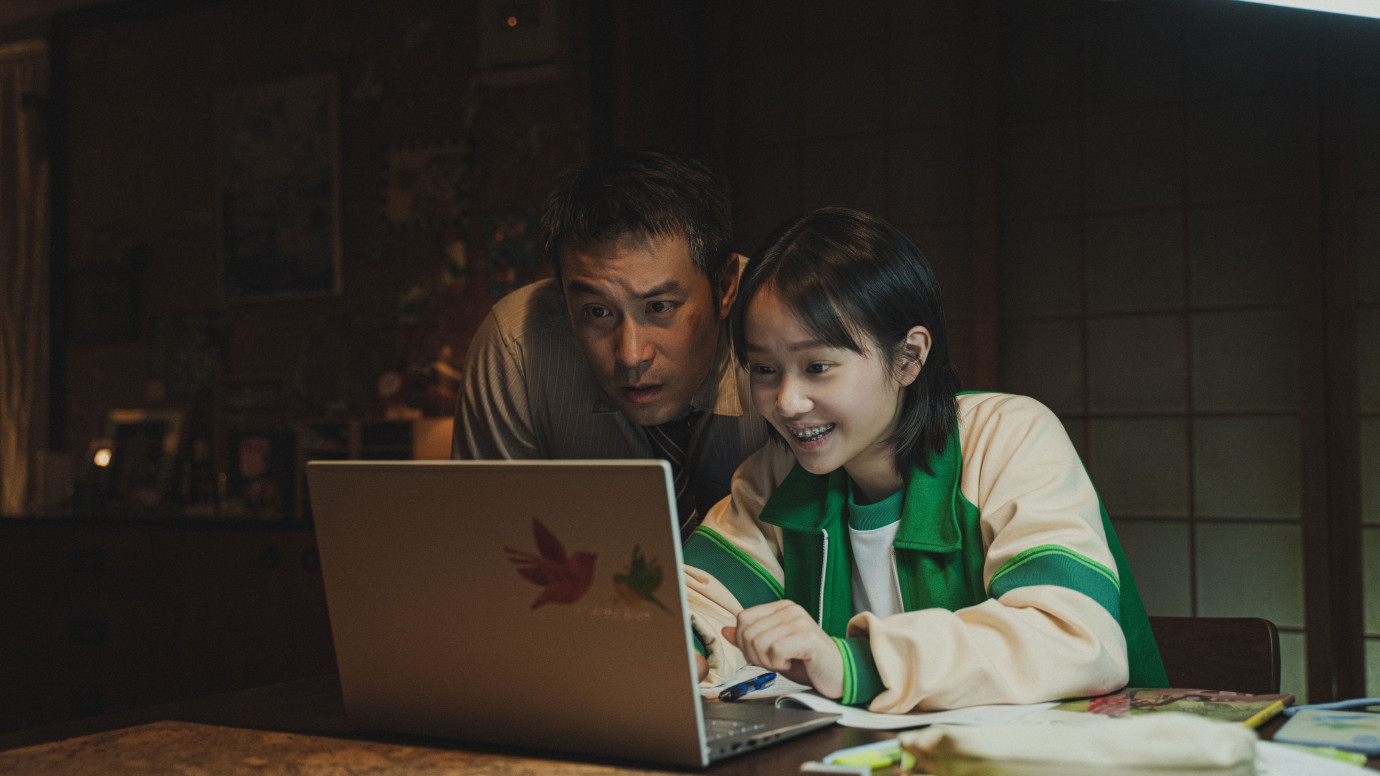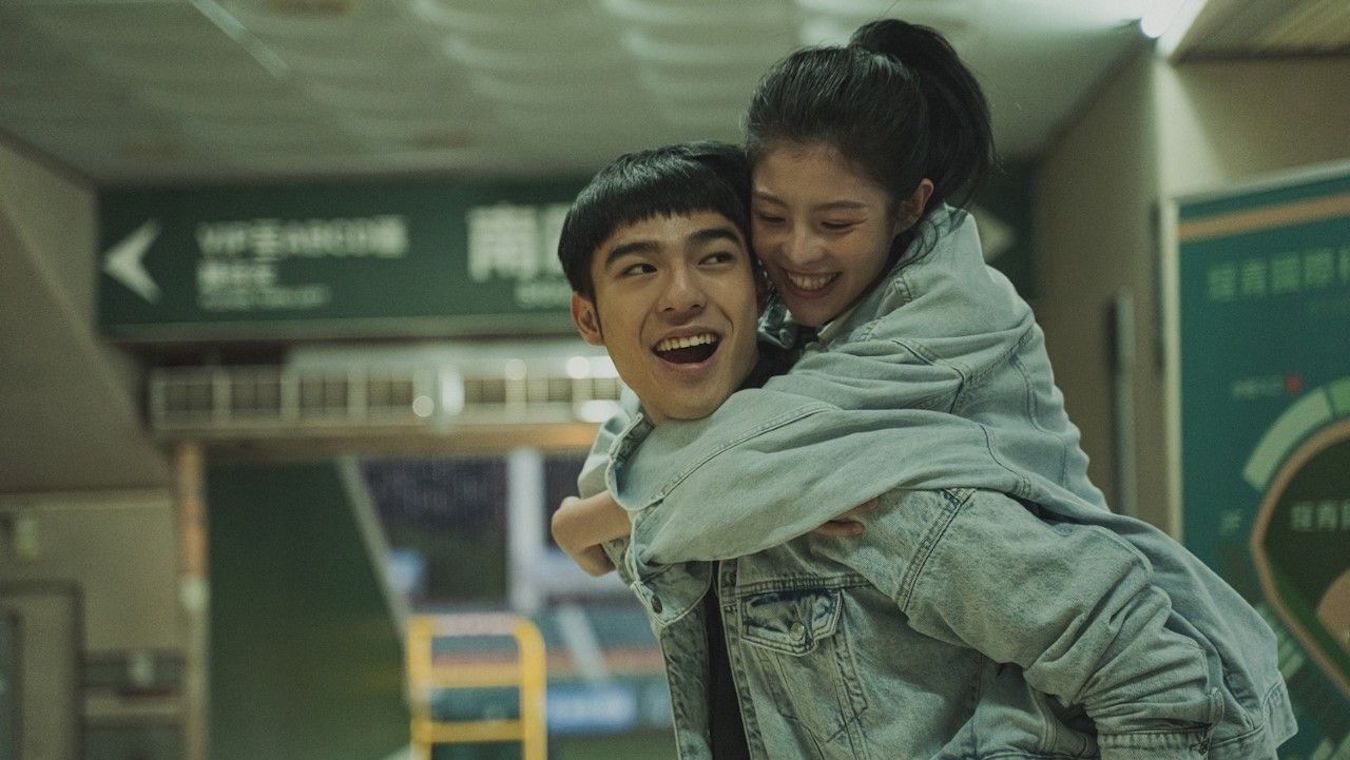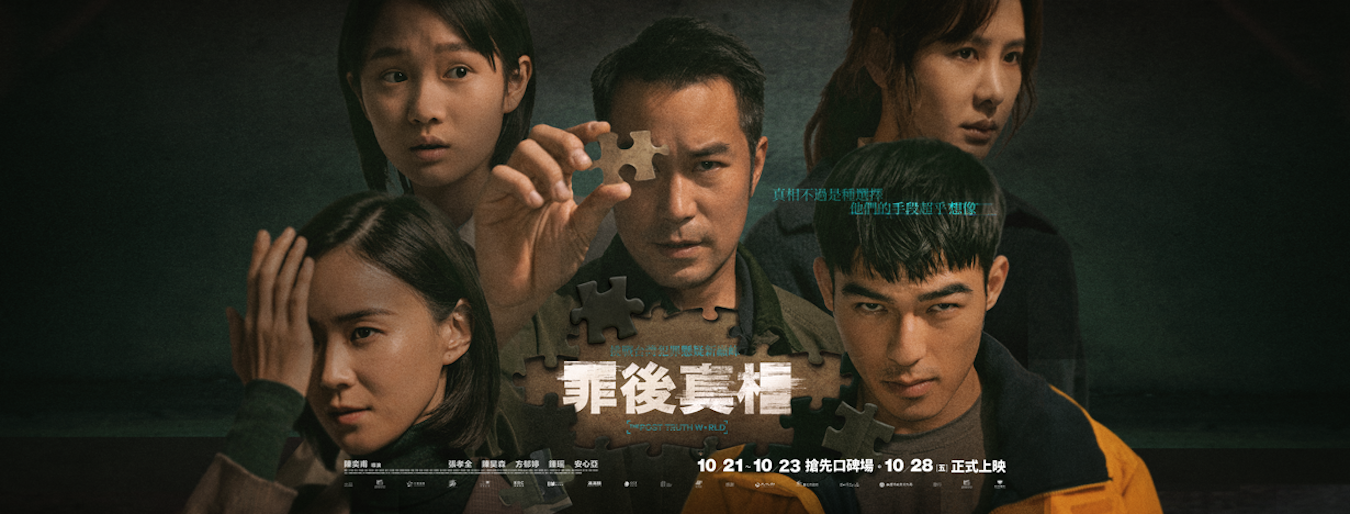by Brian Hioe
語言:
English
Photo Credit: The Post-Truth World/Facebook
THE POST-TRUTH WORLD (罪後真相) is an intriguing, if somewhat narratively flawed read on the nature of news, virality, and truth.
The crime drama follows Liu Li-min, an online media personality, who inadvertently becomes caught up in the series of events around the apparent murder of rich heiress Wang Shih-yun by high school sports star Chang Chen-yi. Liu is first present at the baseball game where Chang apparently murders Chang by stabbing her to death. Then, seven years later, Liu is taken hostage by Chang during a jailbreak after visiting the prison where he is imprisoned to interview another inmate.
As it transpires, Chang has broken out of prison to try and clear his name, having maintained his innocence for the duration of his imprisonment. After escaping, he ditches Liu and flees.

Film still
During the kidnapping, Liu initially milks his kidnapping by Chang for virality, by livestreaming the events. He then later pivots toward defending Chang as having potentially been wrongly imprisoned to attract further attention online. Nevertheless, Liu is a competent investigator, and as he unearths more about the incident, he increasingly comes to suspect that there is genuinely more to the apparent murder, seeing as Chang did not flee the crime scene and was the one who called for medical aid for Wang, as she bled out from her stab wounds.
The Post-Truth World is primarily a thriller, but it suffers from issues with pacing as it plods from one dramatic incident to another. The film is held together by the strong acting of the main cast, however. Joseph Chang manages to make Liu Li-min a charming, if conflicted protagonist, who is caught between his desire to pursue the truth as a journalist, and his need to create viral hits in order for his media company to stay afloat. In this sense, Liu Li-min manages to well capture the two sides of Taiwanese journalism, which can be a powerful agent for truth, at the same time as it shallowly pursues clickbait content.
Edward Chen’s performance as Chang Chen-yi is also a strong one. Chang, who spends most of the film driven by smoldering rage and a desire to take revenge on Wang’s true killers, manages to vest his character with a great deal of charisma. A strength of the movie is how it sets up Liu and Chang as parallel characters. It emerges that both are haunted by the deaths of their partners–Chang by Wang’s murder, while Liu has not overcome the death of his wife from cancer several years earlier. To this extent, Caitlin Fang’s turn as Liu Li-min’s daughter also serves to provide him with a charming, humorous sidekick, as someone to talk to as he carries out his investigation.

Film still
Whether by design or inadvertently, The Post-Truth World also serves as a powerful argument against capital punishment. In particular, The Post-Truth World gets at how calls for executions in Taiwan are often driven by the media, and how public discourse from not only media, but also influencers, prominent public figures, and others can push for executions even on the basis of circumstantial or flawed evidence. But while in reality, death row prisoners are usually old men by the time that they are released from unfair sentences, the character of Chang Chen-yi instead vests the issue with movie star handsome looks.
The strongest aspect of The Post-Truth World, however, is probably the twist ending. This movie’s conclusion not only sticks the landing, but twists a knife where the many themes of the film are concerned. Even if the film as a whole has visible flaws, the ending proves a haunting one, and the movie is worth watching just for it.



